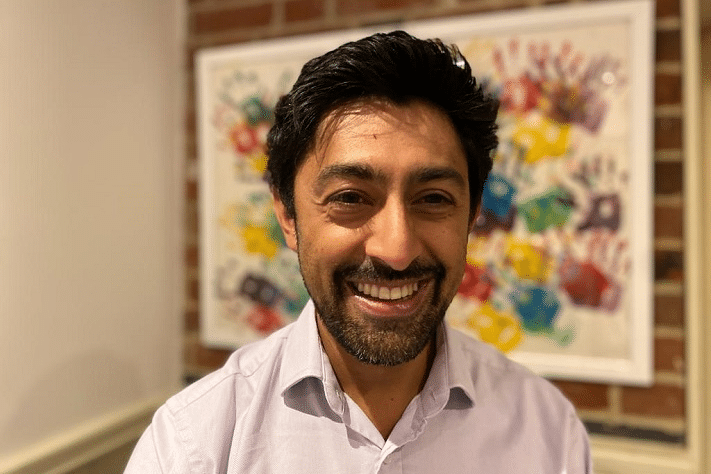11th January 2021
A Voices blog by Dr Sanjay Patel, a paediatric infectious disease and immunology consultant working in Southampton Children’s hospital, and Damian Roland, Paediatric Emergency Medicine Consultant based at the University of Leicester NHS Trust, on the importance of making safe decisions about common illnesses in children during lockdown. It can be confusing to know what to do when your baby or child is unwell during the coronavirus pandemic. Remember that the NHS is still providing safe care.

Dr Sanjay Patel, a paediatric infectious disease and immunology consultant working in Southampton Children’s hospital

Damian Roland, Paediatric Emergency Medicine Consultant based at the University of Leicester NHS Trust
The COVID-19 pandemic has impacted on everyone’s lives. While adults are far more likely to become severely unwell, especially older generations, all of society has been affected by the restrictions needed to curb the spread of the virus.
In the first wave, attendances to healthcare services (emergency departments, urgent care centres and GPs) by children fell dramatically. Substantial efforts were made to reassure parents and carers (henceforth referred to as guardians) that these services were open, as concerns were raised that children were presenting late in the course of their illness. It is not clear how big an impact that delayed presentations actually had, but we do know that there hasn’t been an increase in child deaths in 2020. In fact, we know that guardians have likely done a very impressive job of dealing with their child’s minor illness and injury at home. As we enter a further lockdown, there is an opportunity to further celebrate how well guardians played their role in helping healthcare services manage the first lockdown of the pandemic.
Previous research has demonstrated that guardians of children often don’t believe their child is significantly unwell, but need reassurance or advice to confirm this. The NHS is always open for those with concerns but, if children can be managed at home appropriately, this will enable staff to concentrate on the most unwell patients who are presenting. We can therefore aid guardians with information resources that will increase their confidence in making safe decisions about their children.
Operation Ouch videos
The Operation Ouch presenters: Ronx, Chris and Xand van Tulleken have produced some short video clips on common minor injuries and illnesses that provide pragmatic and easy to follow advice. The style of the videos is aimed at children but are designed to be watch by families and contain “grown-up alerts” to highlight key points. The information in the videos is in keeping with national guidance and is a balanced to ensure that parents are neither unnecessarily scared or reassured by the symptoms discussed. The Operation Ouch videos cover: fever; head injury; diarrhoea; baby breathing; and asthma.
These videos not only provide an additional resource that will help the NHS through a difficult spring but also give a thank you to guardians, as we all appreciate that lockdown is a challenging situation for families.
The videos are hosted by Healthier Together which brings patients and healthcare professionals together to improve how local healthcare is delivered. The website provides advice for parents, young people and pregnant women, and clinical resources to support healthcare professionals – which means that your child is likely to receive consistently high-quality care, irrespective of which healthcare professional they see.
RCPCH posters – advice for parents
It can be confusing to know what to do when your baby or child is unwell during the coronavirus pandemic. Remember that the NHS is still providing safe care.
The Royal College of Paediatrics and Child Health (RCPCH) has joined forces with the British Association of Perinatal Medicine (BAPM – part of the RCPCH), the Institute of Health Visiting (iHV), and the Royal College of General Practitioners (RCGP) to develop clear safety netting guidance for parents.
The posters have been developed for families living in England, Scotland, Wales (in English and Welsh languages) and Northern Ireland about when and how to get medical help for your child, or for your young baby – or for yourself as a young person.
Posters include:
- For parents/carers of babies under 3 months – all UK nations
- For parents/carers (of children of all ages) – all UK nations
- For young people – all UK nations







